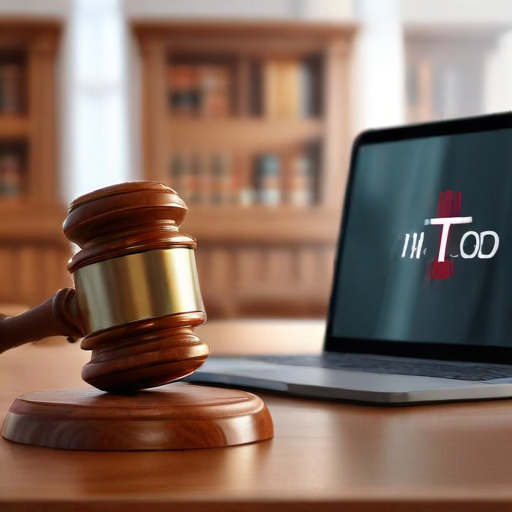A federal appeals court has upheld a law that may lead to the banning of TikTok in the United States by mid-next month, placing the future of the popular social media platform in jeopardy. The court’s decision, based on national security concerns raised by the Justice Department regarding the Chinese-owned app, was reached with a unanimous 3:0 vote by a panel of judges in the US Court of Appeals in Washington, DC.
In the majority opinion written by Judge Douglas Ginsburg, the court stated, “We conclude the portions of the Act the petitioners have standing to challenge, that is the provisions concerning TikTok and its related entities, survive constitutional scrutiny. We therefore deny the petitions.” As a result, the millions of users on TikTok may need to seek alternative communication platforms.
The case may eventually progress to the Supreme Court, which has the option to either take it up or allow the appeals court’s ruling to remain in effect. This outcome poses a significant question for President-elect Donald Trump, who previously attempted to ban TikTok in 2020 but recently expressed opposition to such a move, noting it could benefit TikTok’s rival, Meta.
TikTok spokesperson Michael Hughes expressed confidence that the Supreme Court would uphold Americans’ rights to free speech, emphasizing that the ban is based on flawed and inaccurate information, which could lead to censorship.
The case arose after President Biden enacted the Protecting Americans from Foreign Adversary Controlled Applications Act (PAFACA) in May, which mandates ByteDance, TikTok’s parent company, to sell its US operations to a non-Chinese entity by January 19 or face a ban on its app in the country. TikTok argues that this law unfairly targets the platform based on its content, which challenges First Amendment rights. A coalition of TikTok creators has joined the legal battle, highlighting their concern about the infringement of free speech rights for over 170 million users in the U.S.
This situation presents an opportunity for further dialogue about free speech and digital rights in the U.S. While the legal process unfolds, it remains critical for all stakeholders involved—government officials, users, and corporate entities—to advocate for solutions that protect both national security and individual rights in the rapidly evolving landscape of social media.
In summary, the future of TikTok hangs in the balance as a federal appeals court upholds a law that could lead to its ban in the U.S. by mid-next month, setting the stage for a potential Supreme Court review. The decision has raised significant concerns about free speech and censorship among users and creators alike.
